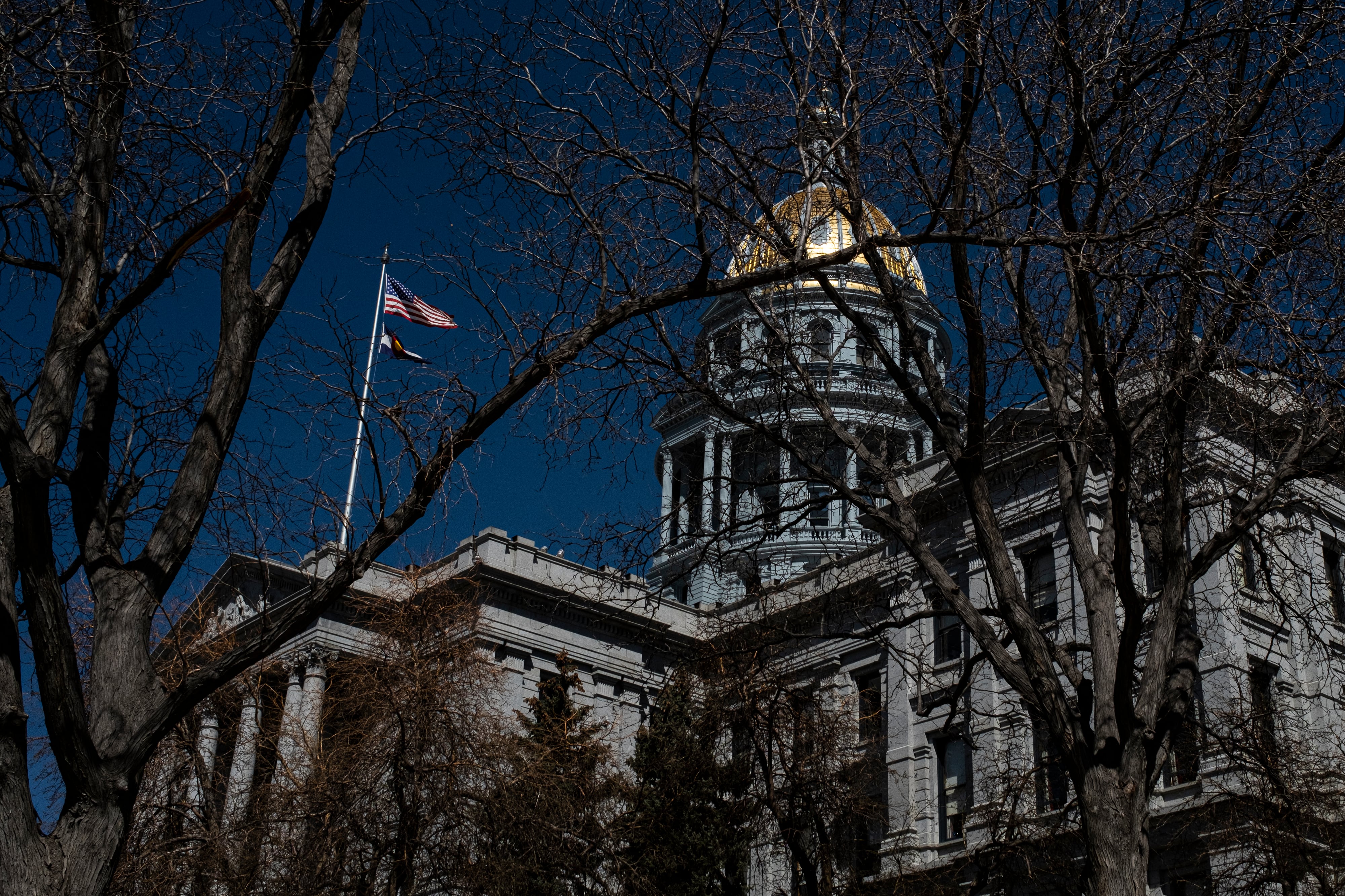The first bills of the legislative session are a way for Colorado lawmakers to signal their priorities.
On education, that means addressing shortages of teachers and mental health professionals, helping adult students who didn’t get what they needed from the school system the first time around, and providing incentives for incarcerated people to learn while in prison.
These are far from the only education issues that will arise during the 2023 Colorado General Assembly — more complicated issues often take weeks or months to hash out behind the scenes before bills get filed — but these bills represent issues their sponsors are passionate about and want to make sure to address.
Here’s a look at some of the first education bills filed this session:
Helping educators with the cost of their own education
House Bill 1001 — the very first bill filed — would expand eligibility for student teacher stipends and for educator student loan forgiveness.
This bill would expand several programs to ease the path into the teaching profession and keep more teachers in the classroom as districts around the state struggle to hire and retain staff. It’s sponsored by state Rep. Barbara McLachlan, a Durango Democrat who chairs the House Education Committee; state Rep. Cathy Kipp, a former school board member from Fort Collins; and state Sen. Rachel Zenzinger, chair of the Joint Budget Committee, who has been a longtime advocate of educator student loan forgiveness.
The bill would allow student teachers whose families earn up to 300% of the Pell grant threshold to apply for stipends to cover living expenses or offset the cost of licensing exams. It also allows Colorado student teachers working in schools in other states to qualify in some circumstances.
The bill would make loan forgiveness available to principals and special service providers as well as classroom teachers and school counselors. It also removes the requirement that applicants teach in a rural school or in certain subject areas in a high-poverty school.
Addressing student mental health needs
A number of bills seek to address an ongoing youth mental health crisis.
School districts have stepped up hiring of counselors and psychologists in recent years, but caseloads remain high and many positions go unfilled. Senate Bill 4 would remove the requirement that mental health professionals working in schools have both a professional license and a license from the state education department. Counselors would still have to pass background checks before working with children. It’s sponsored by Democratic state Sens. Janice Marchman of Loveland and Sonya Jaquez Lewis of Lafayette.
House Bill 1003 would create a voluntary program through the state health department to provide mental health assessments and referrals for students in sixth and through 12th grade.
Schools could choose whether to participate, and parents could opt their child out — though children 12 or older could participate even if their parents objected. The school would have to notify parents if their child was recommended for additional services. The bill is sponsored by state Rep. Dafna Michaelson Jenet, a Commerce City Democrat, and state Sen. Lisa Cutter, a Jefferson County Democrat. It’s likely to prompt debate about the role of schools in meeting student mental health needs outside the classroom.
House Bill 1007 seeks to ensure college students know how to access mental health services at their institutions. A recent national survey found that only half of college students knew where to turn for mental health support. The bill would require colleges and universities to put state and national suicide prevention hotline information on student ID cards or otherwise distribute it at the start of each semester. This is a bipartisan bill sponsored by state Reps. Marc Catlin, a Montrose Republican, and Judy Amabile, a Boulder Democrat.
House Bill 1009 would create a committee to recommend best practices for schools to help students who are abusing substances. The Colorado Youth Advisory Council recommends the bill and notes that Colorado youth have high rates of substance abuse and that Colorado schools have inconsistent practices.
Supporting adults who never got a high school diploma
Two bipartisan bills would help adults who never graduated get an education.
Senate Bill 3 would create a high school program for those 21 years or older. The program would teach adult students free of cost and allow them to graduate with a high school diploma. Further, it would provide child care, transportation assistance, and the opportunity to graduate with skills in high-demand jobs.
The bill is sponsored by state Sen. Janet Buckner, an Aurora Democrat; state Sen. Bob Gardner, a Colorado Springs Republican; and state Rep. Mike Weissman, an Aurora Democrat.
The program would allow the Colorado Department of Education to partner with Colorado community-based nonprofit organizations to operate it.
Another bill from state Sens. Zenzinger, an Arvada Democrat, and Barbara Kirkmeyer, a Weld County Republican, and state Reps. Kipp and Catlin, would try to address a key learning gap for adults who are working toward a diploma.
Senate Bill 7 would require high school-equivalent diploma or basic adult education programs to ensure students learn digital literacy and numeracy skills. The bill says adult students working to gain an education often lack those skills and the programs often don’t address that gap.
Related: Colorado’s high school graduation rate went up with class of 2022, but so did the dropout rate
Incentivizing college for incarcerated students
The federal government will once again allow incarcerated students to receive its grants for college.
State Rep. Matthew Martinez, a Monte Vista Democrat, filed House Bill 1037 to incentivize incarcerated people to get an education by allowing them to reduce their sentence by six months if they earn a college certificate or credential, or up to a year if they earn an associate, bachelor’s, or graduate degree.
The option would be available only to non-violent offenders.
Giving youth more of a say in education
Coming on the heels of a contentious debate over state social studies standards, Senate Bill 8 would create a formal process for current students to have a voice in the development of Colorado academic standards, which are reviewed every six years. This bill was requested by the Colorado Youth Advisory Council.
Jason Gonzales is a reporter covering higher education and the Colorado legislature. Chalkbeat Colorado partners with Open Campus on higher education coverage. Contact Jason at jgonzales@chalkbeat.org.
Bureau Chief Erica Meltzer covers education policy and politics and oversees Chalkbeat Colorado’s education coverage. Contact Erica at emeltzer@chalkbeat.org.





